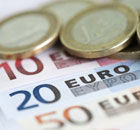Xin Zhiming
Strong medicine is not the best economic remedy
By Xin Zhiming (China Daily)
Updated: 2010-04-07 10:02
 |
Large Medium Small |
Serious ailments require major treatment. But as the body recovers, it could be disastrous to go on prescribing strong medicine.

While the central government is conscious of that rule, some local policymakers are still adamant in expanding investment to boost economic growth.
Hubei, a central province that is anything but prosperous compared with such manufacturing hubs as Guangdong and Zhejiang or financial centers such as Shanghai, announced an eye-popping 12 trillion yuan ($1.8 trillion) investment plan, with 5 trillion yuan to be pooled in the coming three years.
That is 12 TRILLION yuan, not BILLION, believe me. It is three times the $586 billion two-year investment plan initiated by the country in late 2008 in combating the global financial crisis.
While people cast doubt on the financial feasibility of the bold plan, it is worrisome that in the post-crisis era many local governments have continued to resort to government-led investments to boost the economy, a departure from the country's professed goal of making the economy more consumption-driven.
Chongqing, a southwestern municipality, just launched a 1 trillion yuan investment plan. Reportedly Guangdong province has released a five-year investment plan worth 2.3 trillion yuan while Yunnan province has planned to invest 3 trillion yuan in the coming five years.
A doctor may know that strong medicine can be effective in treating patients in an emergency, but will do more harm than good on a patient who has steadily recovered. A better solution may be applying milder treatment and, on that basis, inspire the self-healing function of the body.
For the Chinese economy, a mild but more sustainable treatment is to unleash domestic demand by gradually increasing people's incomes and restructuring the income distribution regime, among others.
Pumping in huge amounts of money quickly boosts gross domestic products (GDP) figures, but won't provide a consistent, inherent driving force for the economy.
Guo Shuqing, chairman of China Construction Bank, the second-largest Chinese lender by assets, warned the country would suffer from economic overheating if its GDP growth exceeded 9.5 percent. Many economists forecast it would be 11-12 percent in the first quarter of this year.
If the massive local investment plans are implemented, high GDP growth is certainly out of question.
But considering ample liquidity as a result of the 2008 stimulus has caused potential, if not real, asset bubbles, how will the Chinese economy cope with the problem, apart from others, such as ballooning local debt, if those new plans are rolled out?
xinzhiming@chinadaily.com.cn













